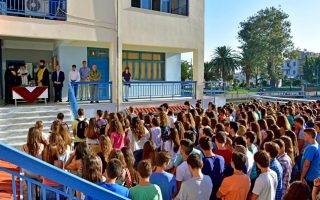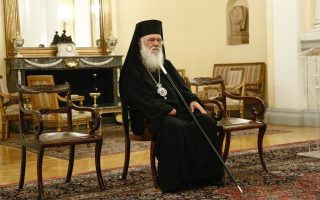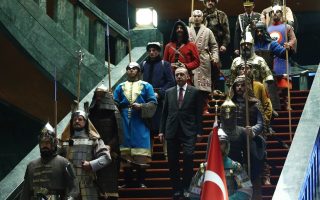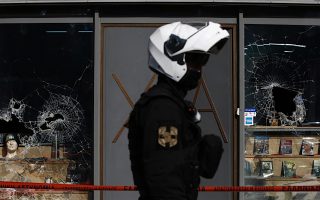Saint Helen, the Holy Cross and our rituals
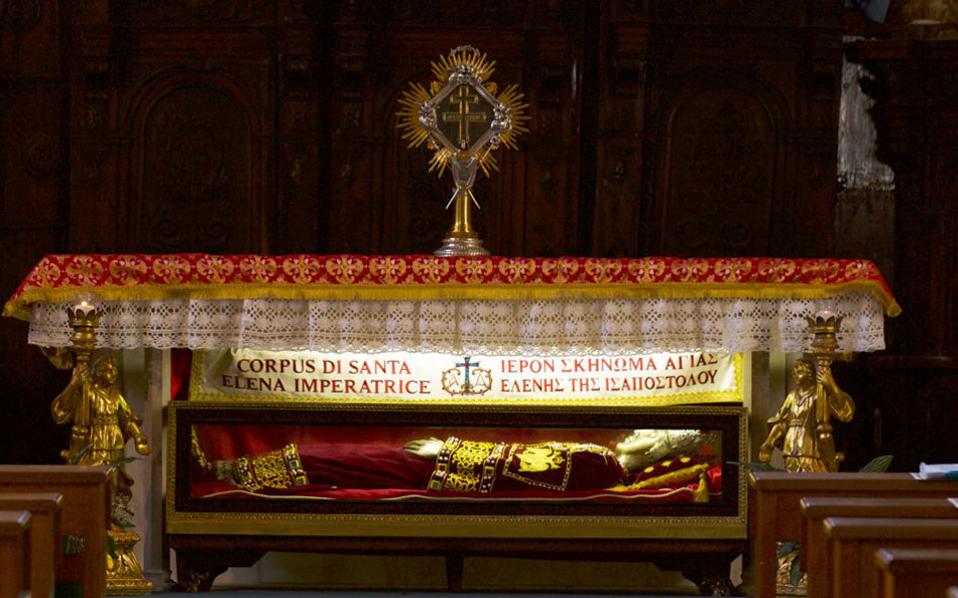
On Sunday, a week before her feast day on May 21, the relics of St Helen, “Equal to the Apostles” and mother of Constantine the Great, arrived in Greece in the pomp and splendor reserved for heads of state, sacred relics and the Holy Light at Easter. The president and other politicians, high clergy, military troops, diplomats and crowds of faithful took part in the ceremony, which began in Venice and ended at the Church of St Barbara in Aegaleo, a western part of the greater Athens metropolitan area – the same church where the relics of St Barbara, also from Venice, rested during a visit in 2015. The honor paid to the divine relics and to a section of the Holy Cross that St Helen is said to have found in the Holy Land, bring together the official state, the Church and the faithful, raising once again questions as to whether issues of faith should be treated with state honors. But however much the image of state and Church marching together may annoy those who believe in the need for their divorce, the great majority will not take part in this discussion. Many will rush to worship, others will carry with on their lives, amid troubles and joy, largely indifferent but tolerant of the show.
Whether wayward children of the Enlightenment or cocooned in the depths of an idealized past, for the great majority of Greeks faith and national identity go together. We see this every day and it is confirmed spectacularly by the official, state reception of holy relics and religious symbols. It shows up also in serious studies. Last week, on May 10, the Pew Research Center released its findings on “Religious Belief and National Belonging in Central and Eastern Europe,” which was conducted in 18 countries. Greece was the only one which was not a member of the former Eastern Bloc with its government-imposed atheism. Among the areas where the Greeks stood out was the large percentage which believes that “our people are not perfect, but our culture is superior to others.” Greeks, at 89 percent, scored highest on this issue, followed by Georgians (85 percent), Armenians (84 percent) and Bulgarians (69 percent). Georgians (with 78 percent), topped the rankings of those who are “very proud” to be a citizen of their country, followed by Greeks (72 percent), Armenians (69 percent) and Serbs (60 percent). This pride is tied closely to their religious sensibilities: 78 percent of Greeks who expressed ethnic pride said also that religion was “very or somewhat” important in their lives, behind only the Georgians at 80 percent.
Beyond this sense of identity tied to religion, however, it is striking to see how many Greeks express a deep sense of the metaphysical that goes beyond the “theoretical” concept of religion. The Pew study found that 66 percent of Greeks believe in the “evil eye,” topping the rankings along with the Latvians, followed by the Ukrainians at 60 percent. Regardless of our use of smartphones and Greece’s membership of the European Union for the past 36 years, most of us sense the existence of forces beyond what we see. And so the power exerted on us by a holy relic may be just as powerful as the awe St Helen may have experienced when she worshipped in the Holy Land and sent back to Constantinople segments of the Holy Cross and relics of saints. Perhaps this is what the monk who carried St Helen’s own remains to Venice from Constantinople felt in 1211, after the crusaders sacked and occupied the great city.
The need for “material” proximity of the divine was well known to the early Christians, who venerated the relics of those whom they considered saints, as a gesture of respect and love but also so that the faithful could focus their worship on them, so that churches and monasteries could gain glory and visitors through the honor of hosting the remains. The victory of orthodoxy over the iconoclasts was the victory of a need that people still feel today, whether they believe in the divine, marvel at the works of the human mind and hand or bow their head before the magnificence of nature. The sense of something greater than ourselves, that is frayed neither by time nor distance, has the power to unite people at a specific point. And this sense of communion is, of itself, a force that can provide hope. However much we may be disturbed by the forging together of politicians, soldiers, priests, television channels, traditional costumes and holy relics in colorful carnivals, we will do well to consider that this is who we are. For good or ill, in victories and defeats, our nation has always wandered between enlightenment and darkness, between public spectacle and personal passion.
In this seemingly endless crisis, whether we believe in miracles or just need comfort or reserves of patience, we may all be different but we are in the same boat. Let us at least try to show some respect toward each other.
